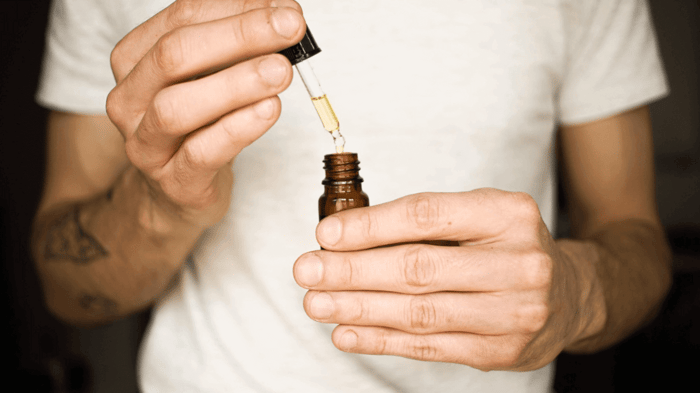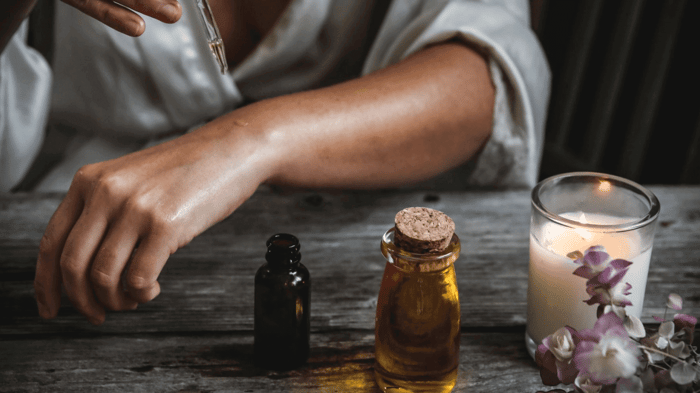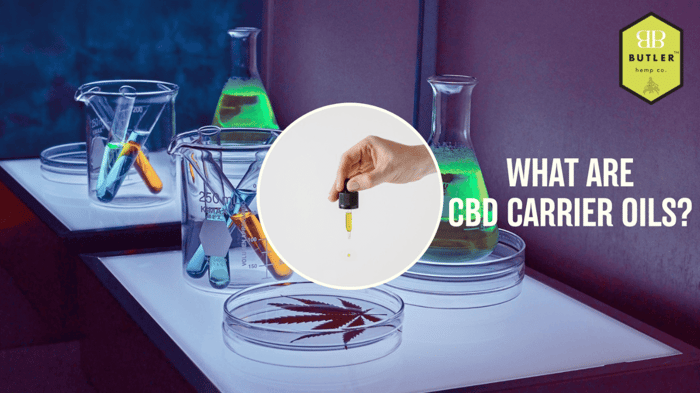11/17/2022
One of the neat aspects of trying CBD is that you can make your experience as customizable as you’d like.
For instance, you can sample a wide variety of tinctures, edibles, and topical creams and incorporate any number of additional ingredients that add to the product’s effects. Whether you’re looking for a moisturizing CBD cream for soothing muscle aches or a fast-acting tincture to cure your insomnia, there’s a product out there that’s perfect for your needs.
If you’re brand new to using CBD, however, the plethora of options can get a little confusing. With multiple CBD oil types to choose from, and a seemingly endless variety of products stemming from each, purchasing your first product may take a little bit of research.
If you’re feeling frustrated, don’t worry. You’re not the first person to ask “Why are there different types of CBD, and how on earth am I supposed to choose the right one?” We’ve put together this guide to help answer your questions.
While an explanation of all the myriad options — from carrier oils to extraction methods — could fill an entire book, we’ll get you started with a breakdown of the different CBD types you’re likely to encounter while shopping.
What’s the difference between the CBD oil types you see in stores?
There are three main types of CBD oil that form the basis of the CBD products you’ll see for sale in most places: full spectrum, broad spectrum, and isolate.
Full Spectrum
Full spectrum CBD products contain the entire suite of botanicals extracted from the hemp plant. They will contain CBD, certainly, but they will also contain the other cannabinoids such as CBG, CBN, and THC. Full spectrum products also contain terpenes, which are the compounds that give plants their unique flavors and scents.
Because full spectrum oils are essentially a condensed version of the extracts taken directly from the plant, you’ll find each ingredient in a similar proportion to what you’d find in the hemp plant itself.
If you check the label, you can see the percentage of each ingredient contained in the product. You’ll find many products with percentages in the range of 15% CBD, 0.3% THC, and 0.5% other cannabinoids. It’s important to note that, while 0.3% THC or less sounds like a very small amount, it is enough to cause a positive result on a drug test. So if you must undergo drug tests for your job, it’s best to steer clear of full spectrum products.
Nature often packages its healing solutions in the most effective combinations straight from the plant. That’s why full spectrum oil is the most powerful among the different types of CBD oil, and will likely produce better pain relief, relaxation, and anti-anxiety results than the other forms of CBD. For this reason, we recommend starting with a full spectrum product if THC drug testing is not a concern.
Broad Spectrum
In an attempt to deliver full-spectrum results without the drug testing issues caused by the inclusion of THC, some manufacturers offer broad spectrum oils. These oils contain the same ingredient percentages as full spectrum products, but without the THC.
Though it sounds effective in principle, in practice broad spectrum products often fall well short of full spectrum performance. Despite containing nearly the same ratios of cannabinoids (other than THC) and terpenes as full spectrum oils, the natural synergy that occurs from an intact extract can’t be replicated. Users often report dulled effects from broad spectrum products, even if they’ve used a higher dose than they would have with a full spectrum blend.
Unless you can’t do so for drug testing or medical reasons, we typically advise customers to choose full spectrum over broad spectrum. We feel it’s a better choice for the money and a more reliable solution for most people.
Isolate
There are some circumstances where turning to a full spectrum product simply isn’t possible. Drug testing is one concern, but some users — such as children, or people with convulsive disorders like epilepsy, for example — need the benefits of CBD without being exposed to THC or any other ingredients. In these cases, an isolate product would likely be the best choice.
To create an isolate, the manufacturer would take the distillate — which is the full spectrum extract — and purify it. They would remove the plant terpenes, THC, and other cannabinoid compounds, leaving only chemically pure CBD behind.
CBD on its own has many benefits, such as anxiety relief and pain relief. However, isolates will not be as powerful as full spectrum options, because they don’t contain all the natural plant compounds that usually work together synergistically to amplify each others’ effects.
Though they may be less powerful than full spectrum oils, isolates can still offer much-needed relief without the risks of failing a drug test or being exposed to THC and other hemp components. Interestingly, some users report the same or better effects from an isolate compared to a broad spectrum product, and often at a lower dose. Therefore, we recommend isolates instead of broad spectrum oils for anyone who cannot use THC.
Which of the different CBD types is right for you?
Ask yourself the following questions to ensure you walk away with the product most likely to suit your needs:
- Will you need to pass a drug test in the future?
- Do you have an allergy or a sensitivity to THC or other hemp ingredients?
- Do you have a convulsive disorder that may be exacerbated by THC?
If you said yes to any of the above, it’s best to stick with either an isolate or a topical cream. You could choose a broad spectrum blend, but in our experience, they offer few if any benefits over an isolate.
- What is your goal for using a CBD product?
For the strongest anxiety-soothing or sleep-aiding effects, opt for a full spectrum product. Under the full spectrum category, you can choose from more specialized products. Choose one geared toward sleep whenever insomnia strikes, for example, or opt for a more general daily use blend if you need CBD for multiple reasons.
If you’re looking for a general-use isolate to help with pain, sleep, and stress, try this THC-free version instead.
- Are you treating localized pain?
If you wish to treat pain in a specific area, a topical cream might be your best bet. You can find full spectrum help in the form of soothing, moisturizing creams — these are wonderful for general aches or after-sunburn care — or no-nonsense roll-ons for fast relief of body aches and muscle pains.
It’s a little-known fact that you can use full spectrum topicals containing THC even if you’re subject to regular drug testing. Our skin has cannabinoid receptors which bond with the ingredients in the cream, but those cannabinoids never pass into the bloodstream like they would if you ingested the product or took it sublingually.
Still have questions? Let the experts at Butler Hemp Co. answer them for you.
We understand that the world of CBD can feel a little intimidating to new users, and that you may not be ready to take the plunge after reading a blog post or two. If you’re on the fence about which product is right for you, feel free to contact us. We are happy to answer your questions about products, dosage, effects, or any other concerns you may have.
Extra Strength 3000mg THC Free Oil

$64.99
Daily stressors like work, money, and family life can disrupt your zen and leave you feeling anxious, unproductive, and sluggish. High stress and anxiety levels can affect sleep, trigger inflammation, and throw both physical and mental health completely out of whack. So, we… read more




